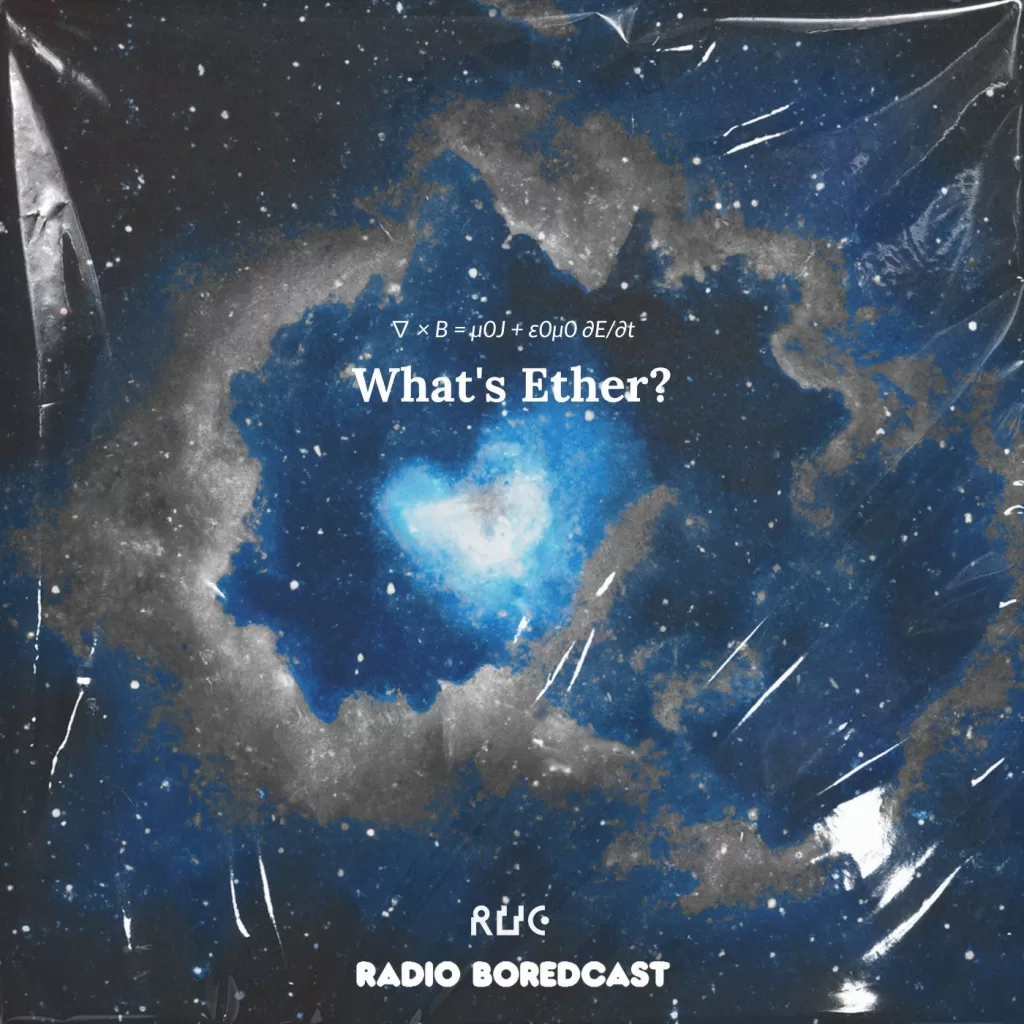
Podcast – Download
In radio, there are many expressions, words, and sayings that drive the listener to be the creator of a contingent reality between what is heard and the time-space of its perception. For me, one of these words is “ether”. Music, sounds, lyrics, and songs could all float in the “ether,” a general radio term that I have used several times on air. When a radio broadcaster uses the expressions “in the ether” or “through ether waves”, my mind usually goes to the idea of an invisible flying ocean or a vibrating ghosted entity delivering sounds woven into a dark blue cape. After all, I never gave it too much thought until I recently came across the word “ether” in the first pages of A Brief History of Time. Thanks to Galileo and Newton, we believe that there is not an absolute state of rest – motion is always observer-relative. Later, Maxwell’s theory predicted that radio and light waves would travel at a fixed speed. The problem was that this speed had to be relative to something. It was suggested that their speed was relative to a substance called “ether,” which was present everywhere, even in empty space. Ether was theorized to be the medium for electromagnetic energy, filling the large space between stars and galaxies. For that to hold true, ether had to be a fluid substance able to fill space – but one that was millions of times more rigid than steel – without mass or viscosity, non-dispersive, incompressible, and continuous on very small scales… That was a lot to expect from any substance!
The most successful failed experiment in science
During the years between 1881 and 1887, the physicist Albert Michelson and the scientist Edward Morley performed a series of experiments to determine the existence of light’s intergalactic medium – ether. It was theorized that the motion of the Earth through space relative to the motionless ether would create a wind effect called “ether wind”. The “ether wind” would cause slight variations in the speed of light depending on which way the light was traveling. Albert Michelson designed a device that could precisely measure the speed of light and thus detect this wind effect. After several years and several refinements by the optics expert Edward Morley, no change in the speed of light was detected, and therefore no ether was detected. Disproving the existence of ether was a major step leading up to Albert Einstein’s special theory of relativity. The Michelson–Morley experiment is referred to as the moving-off point for the theoretical aspects of the Second Scientific Revolution… Science moved on, but the word “ether” retained a mystical connotation – existing in an imaginary valley somewhere within the spheres of new-age prophets, literature, and radio ‘aficionados‘.
In this episode, I trace a radiography of my perception of “ether”, rescuing old tunes like the Italian operatic soprano Amelita Galli-Curci (1882-1963) singing the beautiful theme ‘Crepuscule’; the obscure music of Don Moreland Bert Williams, the soothing harp of Dorothy Ashby; orchestral sounds of Frank Chacksfield and Glenn Miller, Spade Cooley & The Western Swing Dance Gang and the exotic Lord Beginner. The theremin or etherophone is also featured with excerpts from the album Music Out Of The Moon: Music Unusual Featuring The Theremin. Curiously, in a recent book by David M. Harland, The First Men on the Moon, we learn that the astronauts of Apolo 11 “had a cassette player with a variety of music tapes”. Armstrong brought to space Dvorák’s New World Symphony and Music Out Of The Moon, a collection of 6 great “space age” tracks conducted by Leslie Baxter and featuring Samuel Hoffman playing the Theremin. This episode also features space sounds from The Voyager Golden Record and from Symphonies Of The Planets 1-5 NASA Voyager Recordings.
Podcast – Download
Carlo Patrão
